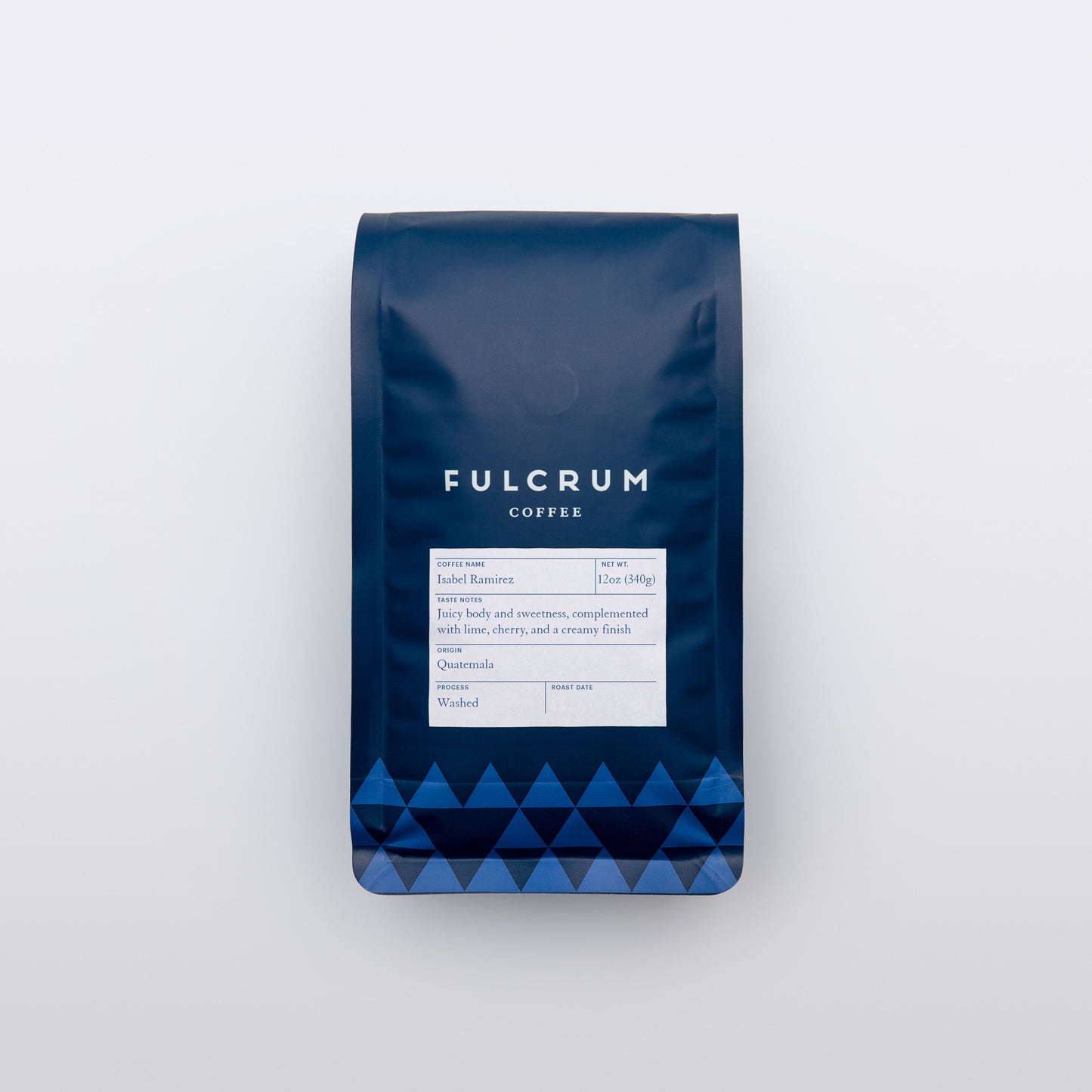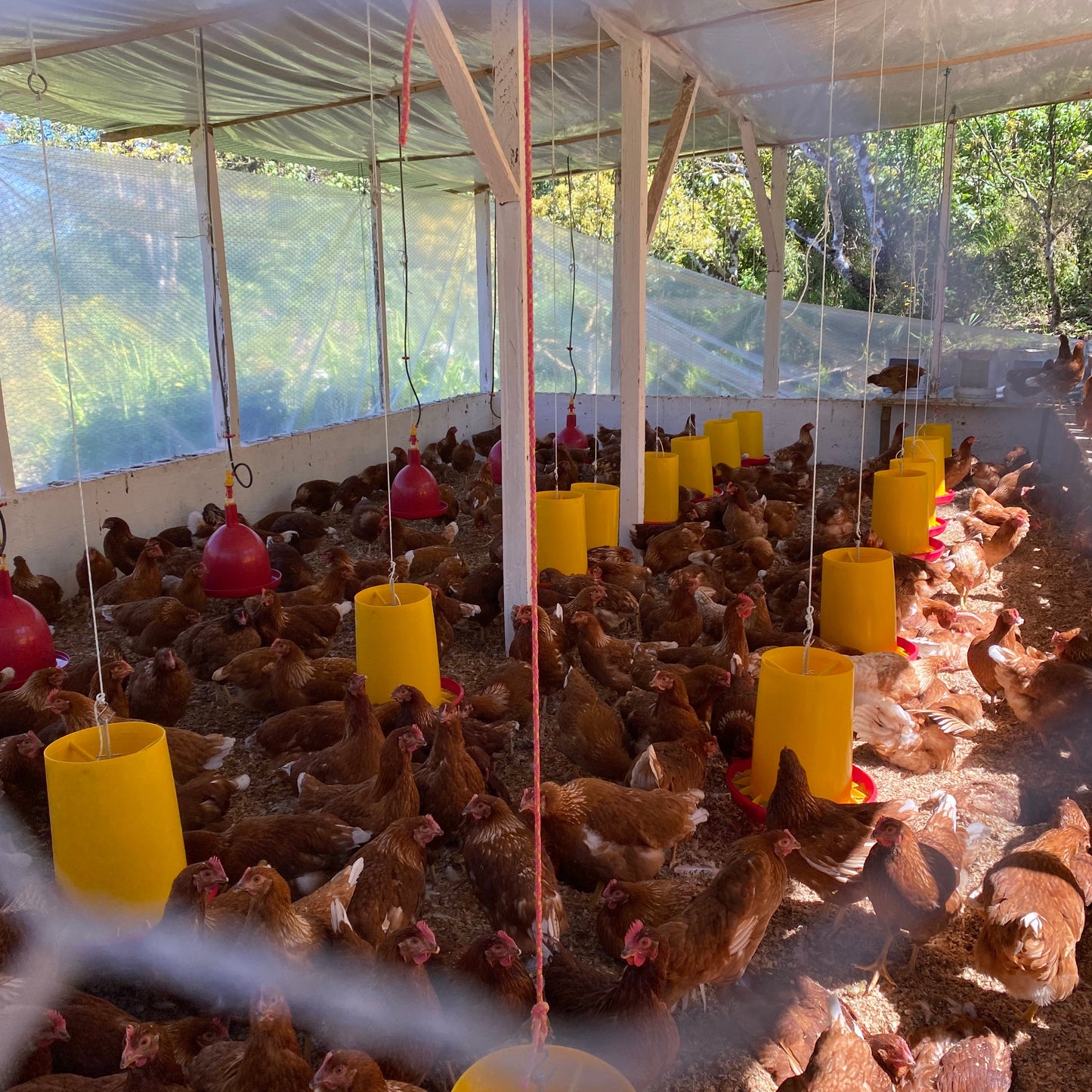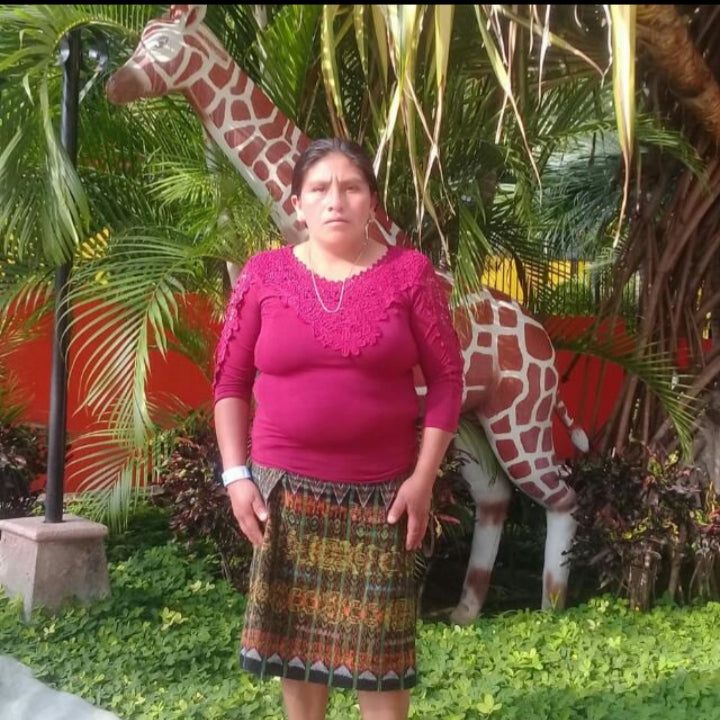All orders are roasted and packaged on demand. We roast our coffee beans every Monday and Wednesday, shipping orders on Wednesdays and Fridays. Please remember that the cut-off time for placing orders is 10 AM on Mondays for Wednesday shipments and 10 AM on Wednesdays for Friday shipments.
All orders over $75 ship for free!
This single-origin coffee is cultivated by Isabel Ramirez, a second-generation farmer who resides in the Huehuetenango region, specifically in Concepcion Huista. Her farm, Q'antxabina, takes its name from the local indigenous language, Popti, meaning "Guachpilin" in Spanish—an indigenous tree used to provide shade for coffee plants. After Isabel's husband emigrated to the United States due to economic constraints and low coffee prices, she assumed management of the farm. Isabel is now passing down farming practices to their children, ensuring the continuity of their coffee production.
Isabel is a member of Jovemcafe, a local group supported by organizations such as Primavera and The Chain Collaborative (TCC). Through TCC's Community-Led Development Incubator, Jovemcafe has embarked on a transformative project. They established a henhouse for egg-laying hens, enabling the group to generate supplemental income by selling eggs. Additionally, they have created a nursery to cultivate forest trees, fruit trees, and wood trees for sale within the community. Alongside these initiatives, the group plans to utilize the hens' manure as organic fertilizer for the nursery, promoting sustainability in their operations.
Isabel is a member of Jovemcafe, a local group supported by organizations such as Primavera and The Chain Collaborative (TCC). Through TCC's Community-Led Development Incubator, Jovemcafe has embarked on a transformative project. They established a henhouse for egg-laying hens, enabling the group to generate supplemental income by selling eggs. Additionally, they have created a nursery to cultivate forest trees, fruit trees, and wood trees for sale within the community. Alongside these initiatives, the group plans to utilize the hens' manure as organic fertilizer for the nursery, promoting sustainability in their operations.
The commitment displayed by Guatemalan coffee producers, coupled with the wide range of flavor profiles their coffees offer—from rich and chocolaty to sweet, fruity, and complex—solidifies Guatemala's reputation as a distinguished origin for specialty coffee. The efforts made to ensure sustainable practices and empower local communities further highlight the dedication and innovation of the country's coffee industry.
Variety: Caturra, Bourbon
Process: Washed
Region: Huehuetenango
Altitude: 1,700 MASL
Brewing coffee on a V60 enhances the flavor profile, allowing the subtle notes of different beans to shine through for a more enjoyable tasting experience. Its user-friendly design gives you precise control over brewing variables, ensuring consistent and delicious results each time.
Coffee: 25g
Grind: Medium fine (like table salt)
Water: 400g 91° C/ 196° F
Total Brew Time: 3.5 Minutes
Yields appx. 1.5 cups
Prep
Wet the filter in the V60 cone with hot water over a mug or carafe. Dispose of water. Place 25g of ground coffee into the wet filter and tap sides to even out the grounds.
Bloom
Pour 50g of water and stir to ensure all the grounds are wet. Start timer and wait 30 seconds for the coffee to de-gas.
Brew
Pour 150g of water evenly over the coffee. Grab the base of the brewer and swirl the brew lightly once. Pour 200g of water evenly over the coffee. Swirl the brew lightly once more. Drain time should take about 1-2 min.







